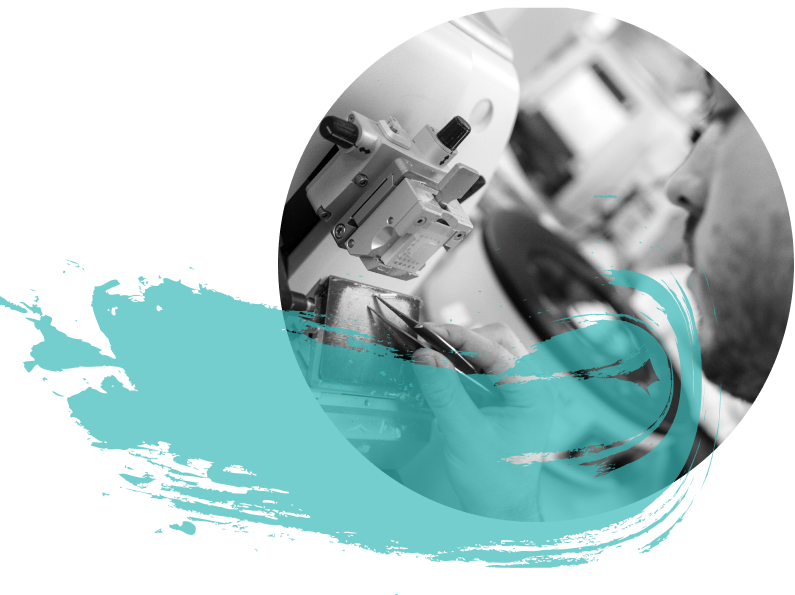
The Cerba HealthCare group's mission is to support the transformation of medicine and to enhance the role of diagnosis in improving health. Medical innovation is of course central to this.
We support the development of healthcare towards more efficiency, prevention and early detection.
Clinical exome sequencing
Cerba is using clinical exome sequencing since 2016 to search abnormalities in the sequence of a gene. It has become possible thanks to the performance of massive parallel sequencing. It allows non-targeted analysis, at very high resolution, of qualitative modifications of genes. The analysis is performed by comparing the sequence of the patient's exome to reference sequences obtained by sequencing a group of healthy individuals.
The syndromic approach
The syndromic approach is a new way of diagnosing infectious diseases that allows the simultaneous detection of all the most common microorganisms responsible for an infection in a single test. Cerba HealthCare has pioneered this approach by developing tests for all pathogens potentially involved in respiratory, gastrointestinal or sexually transmitted infections.
Gut microbiota assessment
Maintaining good health is a major element in the prevention of many diseases and our patients are increasingly aware of this. This observation led us in 2014 to develop a range of functional and preventive biology assessments, including a gut microbiota assessment for hygienic and dietary advice. Since 2019, Cerba, our specialized clinical pathology laboratory has been offering a gut microbiota analysis test that relies on high-throughput sequencing techniques (NGS). A real evolution compared to culture tests, this technique makes it possible to determine the complete mapping of bacterial flora in the intestine.
NIPD
In 2013, the French National Authority for Health included in its recommendations the non-invasive prenatal diagnostic test (NIPD) developed by Cerba HealthCare: a genetic test that detects trisomy 21 through DNA circulating in the mother's blood. Rapid and reliable, this genetic test marked a breakthrough in the screening strategy for trisomy 21, since it allowed a diagnosis via a simple blood sample from the mother and without recourse to sampling the amniotic fluid of the foetus, an invasive and lethal procedure for 1% of foetuses. At the end of 2013, Cerba became the first specialized clinical pathology laboratory in France to make its diagnosis test for trisomy 13, 18 and 21 by free circulating DNA available to the medical profession.
De Vivo's disease
Rare diseases are also a field of medical investigation that many scientists are involved in. Since 2017, our blood diagnosis for De Vivo's disease has replaced lumbar puncture. Developed in partnership with the start-up Metafora, this non-invasive test is the first in history to benefit from an innovation package (exemption reimbursement). More than 700 child patients have already benefited from it.

Aurélie Driss Corbin
We are committed to precision medicine.
Precision medicine is seen as one of the pillars of tomorrow's medicine, particularly in oncology, and is largely based on clinical pathology and bioinformatics tools. We have developed all the tests needed for precision medicine and can, thanks to the diversity and large amount of data resulting from our results, support its roll-out.
Our expertise and patient recruitment potential make Cerba HealthCare an essential partner in medical research.
The Group participates in clinical trials to accelerate the development of new treatments, but also in the development of innovative tests, such as the blood diagnosis of cancers linked to the HPV virus in collaboration with Unicancer, the Institut Curie and INCa's support. In 2017, the Lorraine Cancer Institute and Laboratoire Cerba collaborated on the clinical validation of this test, an essential step in assessing its value in current medical practice.
We use new technologies to develop the most advanced solutions for diagnosis.
In 2013, Cerba HealthCare was the first in France to offer blood screening for trisomy 21 by high-throughput sequencing (NGS). Since then, we have integrated NGS technology into applications such as tumour genetics, cystic fibrosis, clinical exome sequencing or panels of genes in oncology and are exploring the potential of other advanced technologies such as high resolution mass spectrometry, spectoral flow cytometry or mass cytometry.

Even if medical expertise is intrinsic to our profession, it must be accompanied by complementary expertise to fully meet the expectations of patients and health professionals. For the Cerba HealthCare's teams, service innovation means improving the patient experience and providing additional value to the healthcare professional.


